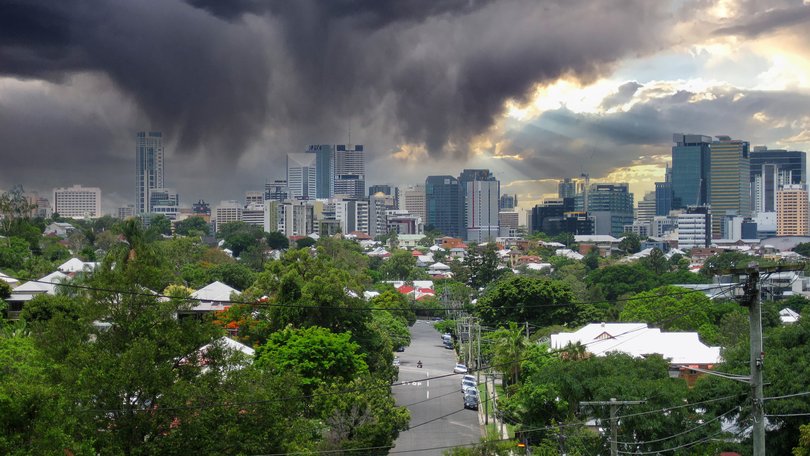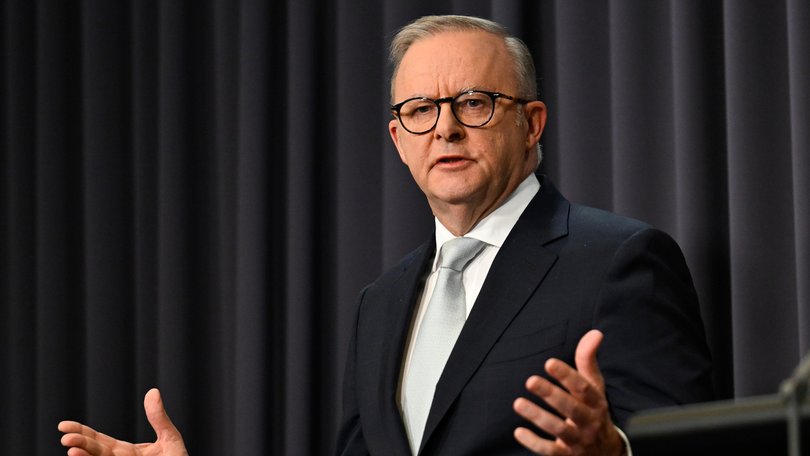Election hangover warning for Anthony Albanese as cost of living, future fears worry Australians
There’s no end in sight to the worry Australians have been feeling since the federal election.

A newly published post-election poll has given a bleak overview of the public mood and offered up a sobering lesson for Labor after its huge parliamentary win.
The nationwide survey of more than 4000 voters conducted by the Redbridge Group in June confirmed a deep sense of gloom about the future that analysts say shows no signs of improving.
Tony Barry, Redbridge’s director of corporate affairs and communications, told The Nightly the results showed the “entrenched pessimism in the electorate” was a warning that Labor should not get “too cocky” about its large majority.
Sign up to The Nightly's newsletters.
Get the first look at the digital newspaper, curated daily stories and breaking headlines delivered to your inbox.
By continuing you agree to our Terms and Privacy Policy.The 68-page survey canvassed voter sentiment on the election outcome, expectations for the future and Labor’s proposal to hike the tax rate from 15 to 30 per cent on the earnings of those whose super balances are above $3 million.
Some of its most disturbing findings emerged from a question about whether Australia was “headed in the right or wrong direction?”, designed to assess the general climate.
The results revealed that 36 per cent thought the country was headed in the right direction, compared to 43 per cent who did not, and 21 per cent who were not sure.
The 36 per cent represented a lift in expectations from consistent low thirties found in five previous polls since February 2024, but Mr Barry said qualitative research attributed this to interest rate cuts that had offered immediate relief.
Overall, the nation is in a funk that it does not know how to get out of.
Responses to the question are broken down by age, gender, education, religion, birthplace, location, voting preferences and socio-economic indicators including income, home ownership and financial stress levels.
Among the most worried about the future are the 35-49 age group, on 45 per cent, and those 65 and older, on 49 per cent.

Men are slightly more pessimistic than woman, on 44 to 41 per cent, and those with a high school or vocational education have a less sunny outlook than people who went to university.
Forty four per cent of people born in Australia do not think the country is going in the right direction, while 35 per cent of those born in another country share a similar concern.
The figures become most stark when compared via the measure of income or financial stress.
Among those earning $3000 or more a week, 41 per cent believe Australia is progressing well, while only 32 per cent of those earning less than $1000 a week share this view.
Sixty per cent of people experiencing a “great deal of stress” have hope for the future, while 49 per cent of those with “no stress” have a positive disposition.
In what appears to be good news for Labor, 64 per cent of their voters believe the country is moving in the right direction, while only 20 per cent of Coalition supporters do.
However, Mr Barry warned that this masked a terrible primary vote for the Government in the last election and overall voter discontent.
“Despite all the problems the Coalition have got, Labor shouldn’t be complacent about it because there have been plenty of examples in the past of big margins that have evaporated,” he said.
“There is a lot of grievance in the electorate, a lot of frustration,” he said.
Mr Barry, a former deputy state director for the Liberals in Victoria and advisor to Malcolm Turnbull, said Labor had benefited from former Coalition leader Peter Dutton’s failure to articulate a broader agenda.
“This is where Labor needs to be careful. It was a thumping win but it wasn’t. It’s a mile wide but an inch deep,” he said.
Mr Barry said focus groups showed the national despondency was “typically underpinned by economic assessments” on the cost-of-living burden and housing affordability as people mourned for better times in the past.
Discussions in these groups pointed to the belief that life was not only tough now but that it was going to get worse, he said.
“They don’t all want jet skis and European summer holidays. They just want affordability and some stability in their lives,” said Mr Barry.
“When your income has not kept up with cost-of-living increases by such an amount . . . no one in these focus groups thinks their groceries are going to get cheaper, their electricity is going to get cheaper, their petrol is going to get cheaper,” he said.
The pessimism among the 35 to 49-year-old age group, who were worried not only about the cost-of-living but also about healthcare and schooling for their children, was also a warning sign, he said.
Asked for their perception of whether living standards would be better in five years’ time compared to before the COVID-19 pandemic, 50 per cent of all respondents also said “much worse” or “worse” compared to 44 per cent believed there would be an improvement.
Dr Liz Allen, a demographer and social researcher at the ANU Centre for Policy Research, said at the heart of the national pessimism lay “a lack of hope that tomorrow will be better”.
Declining birthrates were a sign that the barriers to a much-wanted child were insurmountable.
“Housing affordability, socio-economic security, gender inequality and climate change are creating an uncertain future and in that overwhelming sense of insecurity, an erosion of social cohesion and a lack of hope,” she said.
“Young folk don’t feel like tomorrow’s necessarily worth living.”
Dr Allen said it was difficult to pinpoint a moment in time when society lost its way but pointed to a combination of indicators such as housing affordability worsening over generations and wages stagnating alongside equality measures going backwards and a “climate boiling point”.
“It is a cluster of crises that undermine the very thing that makes us human, or makes us feel like we can lead a good life.
“These multiple crises have us standing on a precipice of a very deep, potentially fiery hole,” she said.
Politicians could ignore this at their peril, she warned.
“With a lack of hope become comes an erosion of social cohesion. What happens when we have an eroding social cohesion is that we have the potential for social unrest.”

